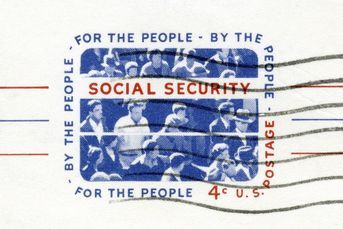Advisers must protect elderly from financial fraud
The financial abuse of older people is on the rise.
As this week’s cover story makes clear, the financial abuse of older people is on the rise.
The elderly are targeted by fraudsters because they often have a pile of savings and a steady stream of income. Older people are also more prone to cognitive decline, physical disability, isolation and loneliness — all of which leave them susceptible to exploitation. More often than not, that exploitation is perpetrated by a close family member.
Elder financial abuse robs victims of their financial security and, even worse, their dignity.
Financial advisers — whether they like it or not — are on the front lines of this scourge. That’s why it’s imperative they learn how to recognize signs that a client may be being victimized.
STRICT POLICIES
Advisers should also have in place strict policies and protocols for how to respond to suspicious behaviors and transactions. Those protocols should include everything from notifying a trusted family member, alerting the proper legal authorities and, if necessary, freezing a client’s account.
Legislators and regulators also play an important role in empowering advisers to protect their older clients from financial exploitation.
In February, the Securities and Exchange Commission approved a Financial Industry Regulatory Authority Inc. rule that requires brokers to make “reasonable efforts” to identify a “trusted contact” for investment accounts. It also allows them to stop disbursing funds from an account and notify the client if the broker suspects fraud.
Unfortunately, that rule, which takes effect in February 2018, falls short in one significant regard: it lacks teeth. Specifically, it imposes no penalties on firms that fail to take action.
complying boldly
Therefore it is up to advisers, and the firms they work for, to decide how bold they will be in complying not just with the letter of the rule, but with its spirit. Needless to say, we hope they will err on the side of being overly aggressive.
In 2016, four states — Alabama, Indiana, Louisiana and Vermont — approved a rule requiring advisers to notify adult protective services or a similar authority if they suspect elder financial fraud. The rule also offers advisers a safe harbor for reporting suspected abuse and withholding funds. Ten other states are considering a similar rule and we urge all others to follow suit.
Only an estimated 2% of incidents of financial exploitation of the elderly is reported, according to research from the National Adult Protective Services Association. Financial advisers can — and should — play a role in raising that number significantly.
Learn more about reprints and licensing for this article.








